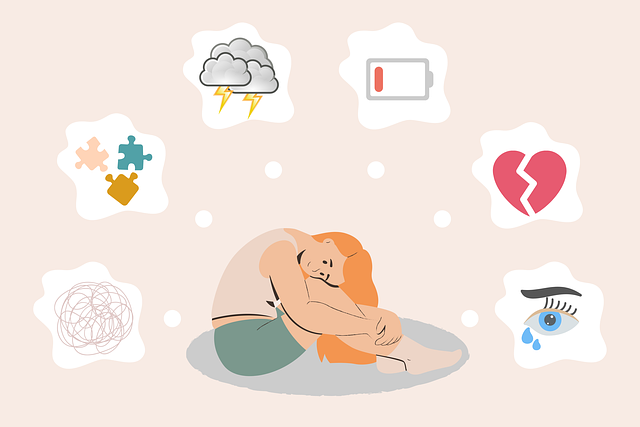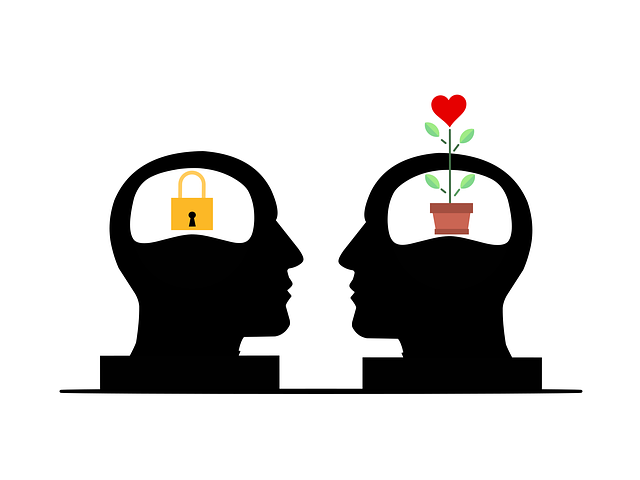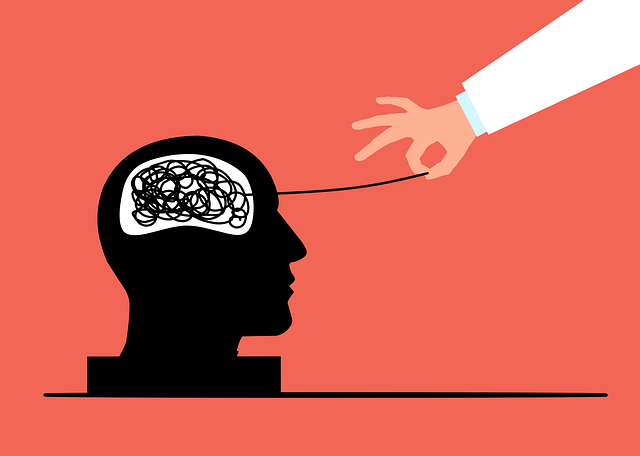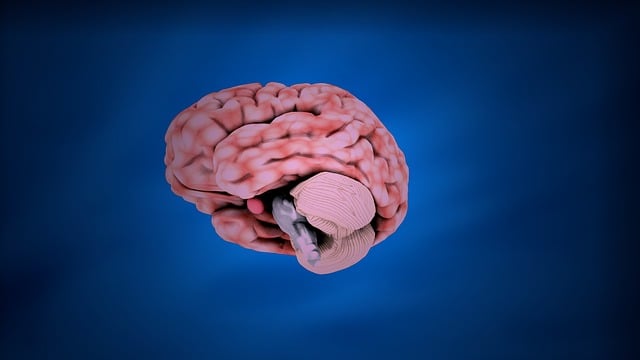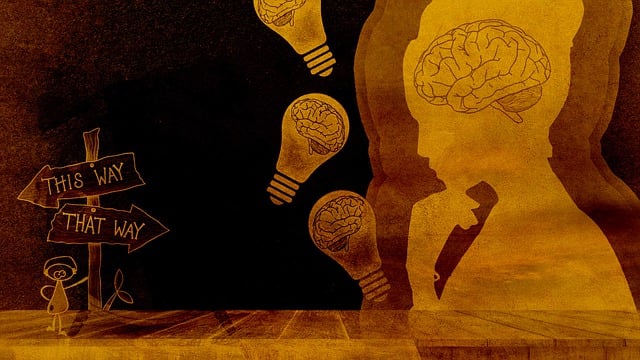In today's diverse communities, Littleton Grief Counseling Therapists exemplify cultural sensitivity in mental healthcare. They go beyond basic ethnic knowledge to understand how cultural factors shape mental health experiences and coping mechanisms. By addressing systemic barriers, discrimination, and incorporating culturally tailored education and safe environments, therapists ensure effective, compassionate care that respects each client's unique identity. This approach enhances engagement, improves treatment outcomes, and builds trust in diverse communities like Littleton.
In today’s diverse society, cultural sensitivity in mental healthcare is paramount. Understanding cultural diversity enhances client outcomes, fostering trust and effective treatment. This article explores key aspects of culturally competent practice, including strategies to overcome barriers. We delve into the impact on client well-being and present case studies, such as successful Littleton Grief Counseling Therapy approaches, demonstrating how awareness translates to improved mental health services for all.
- Understanding Cultural Diversity in Mental Healthcare
- The Impact of Cultural Sensitivity on Client Outcomes
- Strategies for Culturally Competent Practice
- Overcoming Barriers to Providing Sensitive Care
- Case Studies: Best Practices in Littleton Grief Counseling Therapy
Understanding Cultural Diversity in Mental Healthcare

In the realm of mental healthcare, recognizing and embracing cultural diversity is no longer a consideration but a necessity. With communities becoming increasingly diverse, it’s crucial for practitioners like Littleton Grief Counseling Therapists to navigate the intricate landscape of different cultural backgrounds, beliefs, and values. This understanding is vital to ensuring effective and compassionate care for all individuals seeking support for their mental wellness.
Cultural sensitivity involves going beyond basic knowledge of various ethnic groups; it entails a deep exploration of how cultural factors influence mental health experiences. For instance, what may be considered healthy coping mechanisms in one culture could be perceived differently in another. Mental health professionals must also be aware of the potential impact of systemic barriers and discrimination on an individual’s mental health. By integrating this awareness into their practices, therapists can conduct thorough risk assessments for mental health professionals (as per industry standards), design inclusive mental health education programs, and ultimately foster a safe and supportive environment that respects and values each client’s unique cultural identity.
The Impact of Cultural Sensitivity on Client Outcomes

Cultural sensitivity is a cornerstone in mental healthcare practice, especially for organizations like Littleton Grief Counseling Therapy, that cater to diverse communities. By embracing cultural competency, therapists create an environment where clients feel understood and supported, leading to improved engagement and treatment outcomes. When therapists are attuned to their clients’ cultural backgrounds, they can offer more personalized care, ensuring interventions align with the individual’s values and beliefs.
This sensitivity fosters trust and opens avenues for deeper exploration of the client’s experiences. It enables practitioners to navigate complex issues related to mood management, stress management, and emotional regulation, which often have cultural nuances. For instance, a client’s ability to express grief may differ across cultures, impacting their participation in therapy. A culturally sensitive approach allows therapists to adapt their techniques, making therapy more effective for all participants, regardless of background.
Strategies for Culturally Competent Practice

In the realm of mental healthcare, cultural sensitivity is paramount to delivering effective and compassionate services. Cultivating culturally competent practice involves a deep understanding and appreciation of diverse communities and their unique needs. For instance, in a city like Littleton Grief Counseling Therapy, where a melting pot of cultures coexists, therapists must be adept at navigating sensitive topics related to race, ethnicity, religion, and social norms. This requires active listening, open-mindedness, and adaptability in therapy sessions.
Effective strategies include enhancing cross-cultural communication skills through training and ongoing education. Healthcare providers should learn about different cultural practices, beliefs, and expressions of emotion to avoid assumptions and miscommunication. Additionally, risk assessment techniques must consider cultural factors to ensure safety and confidentiality while addressing potential barriers to care. By integrating these approaches, such as Burnout Prevention Strategies for Healthcare Providers and improved Communication Strategies, mental health professionals can foster a more inclusive environment, ultimately enhancing the quality of care for all clients.
Overcoming Barriers to Providing Sensitive Care

Overcoming barriers to providing sensitive care is a crucial aspect of mental healthcare practice, especially in diverse communities where cultural differences play a significant role. Many challenges arise when healthcare providers fail to recognize and respect these differences, leading to mistrust and poor treatment outcomes. For instance, language barriers can hinder effective communication, making it difficult for clients to express their concerns and for therapists to offer tailored support. This is where skilled professionals, like those at Littleton Grief Counseling Therapy, excel by employing translation services and learning basic phrases in clients’ native languages.
Cultural sensitivity also involves addressing the mental illness stigma within various communities. Stigma can prevent individuals from seeking help, reinforcing the need for therapists to be aware of these cultural nuances and create safe, non-judgmental spaces. Through emotional well-being promotion techniques and depression prevention initiatives, mental health professionals can foster an environment that encourages open dialogue and empowers clients to take charge of their mental health. These efforts contribute to reducing the impact of stigma and enhancing the overall effectiveness of care.
Case Studies: Best Practices in Littleton Grief Counseling Therapy

In the realm of mental healthcare, cultural sensitivity is paramount to delivering effective services that resonate with diverse populations. Case studies highlighting best practices in Littleton Grief Counseling Therapy offer valuable insights into this critical aspect. By integrating emotional intelligence and sophisticated communication strategies, therapists in this region have successfully navigated complex cultural terrains, leading to improved patient outcomes. For instance, a study focusing on an ethnic minority group within Littleton revealed that tailoring grief counseling sessions to incorporate cultural symbols and narratives significantly enhanced therapeutic engagement.
These innovative practices go beyond traditional burnout prevention methods by fostering deeper connections between therapists and clients from varied backgrounds. The use of culturally responsive interventions not only respects individual identities but also empowers patients to express their emotions more openly, leading to more meaningful healing processes. This approach underscores the importance of ongoing training in cultural sensitivity for mental healthcare professionals to ensure they remain equipped to provide compassionate and effective counseling, especially within diverse urban settings like Littleton.
Cultural sensitivity in mental healthcare is paramount for fostering positive client outcomes. By understanding and respecting diverse cultural backgrounds, therapists can create a safe and supportive environment that enhances trust and encourages open communication. The strategies outlined, such as those employed by Littleton Grief Counseling Therapy, demonstrate the power of culturally competent practice. Overcoming barriers to providing sensitive care requires ongoing education, self-reflection, and adaptability. Ultimately, prioritizing cultural sensitivity not only benefits individual clients but also enriches the broader mental healthcare landscape.

